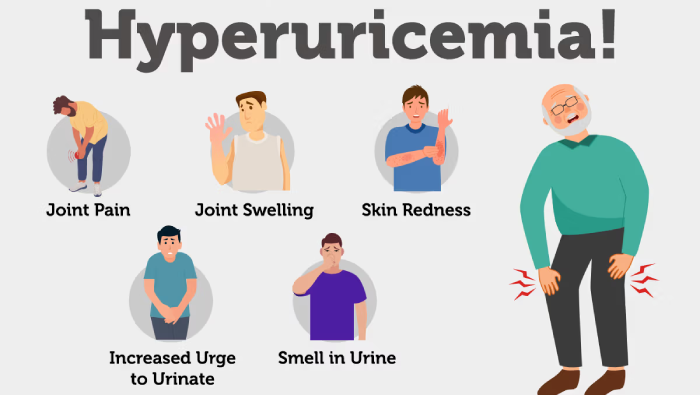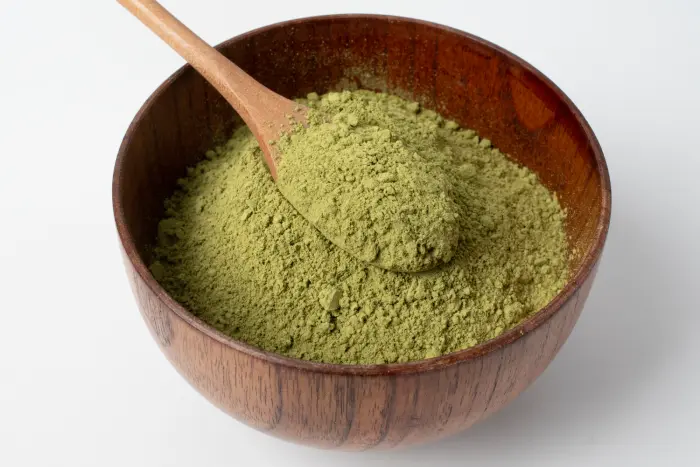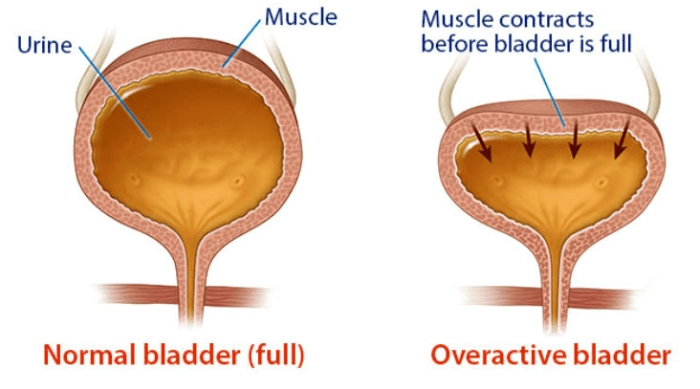Hey there, wellness enthusiasts! 👋 Ready to dive into the fascinating world of meso zeaxanthin? Trust me, this isn’t just another boring supplement story – we’re about to uncover the superhero of eye health that’s been hiding in plain sight! Whether you’re a digital native struggling with screen time or just someone who wants to keep their peepers in tip-top shape, this guide is about to become your new BFF.
The Amazing World of Meso Zeaxanthin
Let’s kick things off with some real talk about meso zeaxanthin and why it’s becoming the hottest topic in eye health. This powerhouse compound isn’t just another trendy supplement – it’s actually a crucial component of your eye’s natural protection system. Think of meso zeaxanthin as your eyes’ personal bodyguard, working 24/7 to keep your vision sharp and your eyes healthy.
The relationship between meso zeaxanthin and zeaxanthin is particularly fascinating. While they’re often mentioned in the same breath, they each play unique roles in maintaining eye health. Meso zeaxanthin holds a special position in the center of your macula (that’s the part of your eye responsible for sharp, detailed vision), while zeaxanthin spreads its protective effects more broadly.
The Science Behind the Magic
When we dive into the science (don’t worry, I’ll keep it fun!), meso zeaxanthin shows some seriously impressive capabilities. This compound doesn’t just hang out in your eyes doing nothing – it’s actively working to protect your vision in multiple ways. The interaction between zeaxanthin and meso zeaxanthin creates a powerful defense system that filters harmful blue light and fights oxidative stress.
What makes this even more interesting is how meso zeaxanthin works alongside other eye-health compounds. When we look at zeaxanthin vs astaxanthin or compare astaxanthin vs zeaxanthin, we find that each has its unique strengths. However, meso zeaxanthin stands out for its specific positioning and protective capabilities in the central retina.

Natural Sources: A Treasure Hunt for Eye Health
Now, here’s where things get really interesting! The quest for foods high in lutein and zeaxanthin can lead you to some surprising places. While most people think they need to stick to boring old leafy greens, the truth is that nature has packed these nutrients into a variety of delicious foods.
Let’s talk about some unexpected sources. Did you know that zeaxanthin brazil nuts are a thing? Yes, these creamy, delicious nuts actually pack a decent amount of eye-healthy compounds! And here’s another surprise – zeaxanthin in white potato exists too. While potatoes might not be the first food you think of for eye health, they’re part of the diverse spectrum of foods with zeaxanthin.
But wait, there’s more! Do black beans have zeaxanthin? Absolutely! And what about their cousins – do mung beans have zeaxanthin? You bet they do! These humble legumes are secret powerhouses of eye-healthy nutrients. The world of lutein zeaxanthin foods is vast and varied, giving you plenty of delicious options to support your eye health naturally.
The Supplement Scene: Navigating Your Options
While getting nutrients from food is great, sometimes we need a little extra help. That’s where lutein and zeaxanthin supplements come into play. The best lutein and zeaxanthin supplements are carefully formulated to provide optimal amounts of these crucial compounds, including meso zeaxanthin, in forms your body can easily use.
When exploring zeaxanthin and lutein supplements, you’ll find various options, from lutein and zeaxanthin tablets to softgels and even powders. The best lutein zeaxanthin supplement for you will depend on several factors, including your dietary patterns, lifestyle, and specific health goals.
Understanding Bioavailability and Absorption
One crucial aspect that often gets overlooked is how well your body can actually use these nutrients. The bioavailability of meso zeaxanthin and other carotenoids can be significantly affected by various factors. Consuming these compounds with healthy fats, for example, can dramatically improve their absorption.
The synergy between different forms of zeaxanthin is particularly interesting. When you combine meso zeaxanthin and zeaxanthin, you’re not just getting two separate benefits – you’re creating a more comprehensive protective effect for your eyes. This is why many high-quality supplements include multiple forms of these compounds.
The Role of Diet in Eye Health
While supplements are valuable, let’s not forget about the fundamental role of diet. Foods high in lutein and zeaxanthin provide these nutrients in their natural form, often accompanied by other beneficial compounds that support overall health. From vibrant yellow and orange vegetables to dark leafy greens, nature has provided us with a rainbow of options for supporting eye health.
It’s fascinating to explore how different cultures around the world have traditionally consumed foods high lutein zeaxanthin. Many traditional diets naturally incorporate these eye-healthy compounds through various indigenous plants and cooking methods. This wisdom has been validated by modern science, showing that these traditional food choices have real benefits for eye health.
Lifestyle Factors and Eye Health
The effectiveness of meso zeaxanthin and related compounds doesn’t exist in a vacuum. Your overall lifestyle plays a crucial role in how well these nutrients work in your body. Screen time, sleep patterns, exposure to natural light, and even stress levels can all impact your eye health and how well your body utilizes these protective compounds.
The Future of Eye Health Research
The scientific understanding of meso zeaxanthin continues to evolve. Current research is exploring new applications and benefits beyond basic eye health. Some studies are investigating potential cognitive benefits, while others are looking at how these compounds might protect against various age-related conditions.
Safety and Side Effects: What You Need to Know
While lutein zeaxanthin side effects are generally mild and rare, it’s important to be informed. Most people tolerate these compounds extremely well, but some might experience mild reactions. Lutein and zeaxanthin side effects can include slight yellowing of the skin with very high doses, though this is temporary and harmless.
Special Considerations for Different Groups
Different life stages and conditions might require different approaches to meso zeaxanthin supplementation. Athletes, for example, might benefit from higher doses due to increased oxidative stress. Similarly, individuals with specific eye conditions might need customized supplementation strategies.
Digital Age Challenges
In our increasingly digital world, the importance of meso zeaxanthin and related compounds cannot be overstated. The continuous exposure to blue light from screens creates new challenges for eye health that our ancestors never faced. Understanding how these protective compounds work becomes even more crucial in this context.
Practical Implementation Strategies
Incorporating meso zeaxanthin into your daily routine doesn’t have to be complicated. Whether through foods with high lutein zeaxanthin content or carefully chosen supplements, consistency is key. Building habits that support eye health can become as natural as your morning coffee routine.
Comparing Different Forms and Sources
When we look at different sources of these nutrients, each has its unique benefits. Natural food sources provide these compounds in their most natural form, often with supporting nutrients. However, supplements can offer more concentrated amounts and consistent dosing. The best approach often combines both strategies.

Environmental Factors and Protection: Your Eyes vs. The World
Let’s get real about the environmental challenges our eyes face daily – it’s like they’re in a constant battle with the modern world! Understanding how environmental factors affect our need for meso zeaxanthin and related compounds is crucial for maintaining optimal eye health.
Living in urban areas? Your eyes are dealing with a whole different level of stress. City dwellers are exposed to significantly higher levels of air pollution, which can increase oxidative stress in the eyes. Think about it – those tiny particulate matters floating around aren’t just irritating your lungs; they’re also affecting your eyes. This is where meso zeaxanthin really shows its superhero qualities, acting as a powerful antioxidant shield.
UV radiation is another major player in this game. Even on cloudy days, your eyes are bombarded with UV rays that can gradually damage your retinal cells. Studies have shown that people living at higher altitudes or spending lots of time outdoors might need higher levels of protective nutrients. If you’re a beach lover or mountain enthusiast, your eyes might be crying out for extra support from lutein and zeaxanthin supplements.
Digital device usage – let’s talk about the elephant in the room! The average person spends over 7 hours daily staring at screens, bombarding their eyes with blue light. This prolonged exposure can deplete your natural meso zeaxanthin reserves faster than you might think. It’s like your eyes are running a marathon every day without proper hydration!
Customizing Your Approach: Because One Size Doesn’t Fit All
When it comes to meso zeaxanthin supplementation, thinking “one size fits all” is like trying to wear your friend’s prescription glasses – it just doesn’t work! Let’s break down why personalization matters so much:
Age-Related Needs: Your eyes’ needs change dramatically with age. After 40, your natural meso zeaxanthin levels typically start declining, which is why people in this age group might benefit more from concentrated supplements rather than relying solely on foods high in lutein and zeaxanthin. It’s like your eyes need that extra boost to keep performing at their best.
Occupation Matters: Different jobs put different demands on your eyes. Are you a graphic designer staring at screens all day? A construction worker dealing with bright sunlight? Or maybe a night shift worker constantly adjusting to artificial lighting? Each scenario creates unique demands for protective nutrients. For instance, IT professionals might need up to 50% more macular pigment support compared to outdoor workers.
Lifestyle Considerations: Your daily habits play a huge role in determining your optimal intake. Someone who regularly consumes foods with zeaxanthin, like fresh greens and colorful vegetables, might need less supplementation than someone with a more limited diet. Think of it as balancing your eye’s nutrition checkbook – you need to make up for any dietary shortfalls.
Health Status: Existing health conditions can significantly impact how your body processes these nutrients. For example, people with diabetes or those taking certain medications might need to adjust their approach. Some medications can affect how well your body absorbs these compounds, making it crucial to work with a healthcare provider to optimize your intake.
The Role of Prevention: Your Eyes’ Insurance Policy
Here’s the thing about eye health – by the time you notice problems, you’re often playing catch-up. That’s why the preventive power of meso zeaxanthin is so crucial. Think of it as an insurance policy for your eyes, but way cooler!
Starting Early: The best time to start caring for your eye health was yesterday; the second best time is now! Research shows that building up your macular pigment density through consistent intake of meso zeaxanthin and related compounds can create a robust foundation for long-term eye health. It’s like building up a savings account for your eyes’ future.
Cumulative Protection: The protective effects of these compounds are cumulative. Regular consumption of foods high in lutein and zeaxanthin, combined with appropriate supplementation, creates a protective shield that strengthens over time. Studies suggest that people who maintain higher levels of these nutrients throughout their lives have better visual function in their later years.
Lifestyle Integration: Prevention isn’t just about popping lutein and zeaxanthin pills – it’s about creating a comprehensive eye health strategy. This includes:
- Regular breaks from digital devices (20-20-20 rule: every 20 minutes, look at something 20 feet away for 20 seconds)
- Wearing proper UV protection outdoors
- Maintaining good overall health through diet and exercise
- Regular eye check-ups to monitor your macular pigment density
Cost-Benefit Analysis: Let’s talk money for a second – investing in preventive eye care through proper nutrition and supplementation is way more cost-effective than dealing with vision problems later. Think about it: the cost of quality lutein and zeaxanthin supplements is a fraction of what you might spend on treating eye conditions that could have been prevented or delayed.
Integrating with Other Health Practices
The benefits of meso zeaxanthin can be enhanced when combined with other health-promoting practices. Regular exercise, adequate sleep, proper hydration, and stress management all contribute to creating an optimal environment for these nutrients to work their magic.
The Bottom Line
As we wrap up this deep dive into the world of meso zeaxanthin, remember that eye health is a journey, not a destination. Whether you choose to focus on lutein and zeaxanthin rich foods, opt for supplements, or combine both approaches, the key is consistency and awareness.
Your eyes work hard every day to help you navigate and appreciate the world around you. Giving them the support they need through proper nutrition and protection isn’t just about maintaining vision – it’s about investing in your overall quality of life.
Ready to give your eyes the love they deserve? Start incorporating these powerful compounds into your daily routine and watch how your eyes thank you! Remember, whether you’re choosing foods high in zeaxanthin or selecting lutein and zeaxanthin pills, every step toward better eye health is a step in the right direction.
Drop your questions in the comments below – I’d love to hear about your experiences with these amazing compounds! Are you team food-first, or do you prefer the convenience of supplements? Let’s keep the conversation going!
Disclaimer: This article is for informational purposes only and should not be taken as medical advice. Always consult with a healthcare professional before starting any new supplement regimen.



